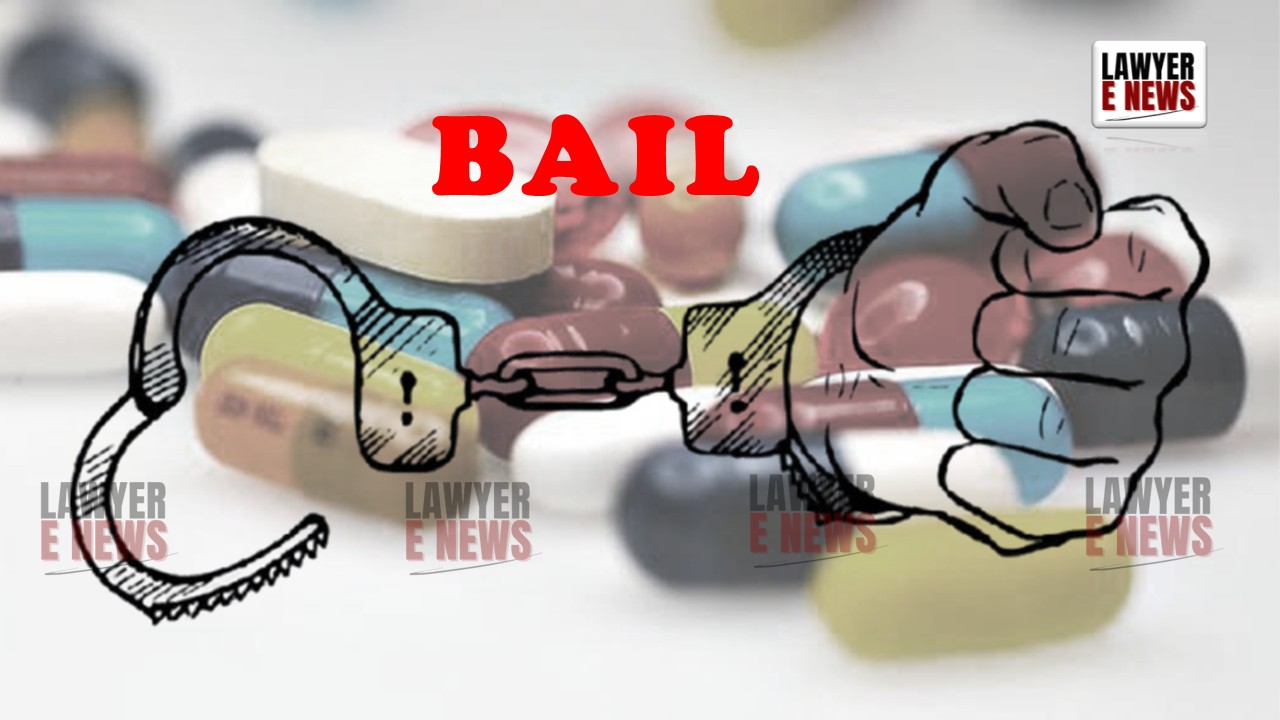-
by Admin
16 February 2026 4:21 AM



Punjab & Haryana High Court granted regular bail to the petitioner accused under the Narcotic Drugs and Psychotropic Substances Act, 1985 (NDPS Act). The Court held that prolonged pre-trial incarceration militates against the fundamental right to life and personal liberty under Article 21 of the Constitution of India.
The Court ruled that while Section 37 of the NDPS Act imposes stringent conditions for bail in cases involving commercial quantity of contraband, an accused’s continued detention for over one year and three months without trial warranted bail. The decision extensively relied on Supreme Court precedents, which have consistently granted bail in NDPS cases based on prolonged custody.
The petitioner, Anil Kumar, was implicated in an NDPS case based solely on the disclosure statements of co-accused. On June 14, 2023, the Punjab Police seized 38 bottles of cough syrup (100 ml each) and 250 tablets from two co-accused, Birbal Singh and Shavinderpal Singh. During interrogation, they named the petitioner as their supplier. Based on their disclosure, Section 29 of the NDPS Act (abetment and conspiracy) was added, and the petitioner was arrested on October 19, 2023.
The Court acknowledged that the commercial quantity of contraband involved triggered the rigors of Section 37 of the NDPS Act, which mandates two conditions before granting bail. First, the Court must hear the Public Prosecutor. Second, the Court must be satisfied that there are reasonable grounds to believe that the accused is not guilty and is not likely to commit an offense while on bail.
Citing Abida v. State of Haryana, 2022:PHHC:058722, the Court reiterated that Section 37 does not impose an absolute bar on bail but creates a reverse burden on the accused. Once the accused demonstrates a prima facie case of innocence and prolonged incarceration, the embargo under Section 37 ceases to operate.
The Court found that the petitioner’s implication was solely based on the disclosure statement of the co-accused, with no independent recovery linking him to the contraband. Relying on Tofan Singh v. State of Tamil Nadu, (2021) 4 SCC 1, the Court held that disclosure statements made to police officers under the NDPS Act cannot be the sole basis for conviction. Without corroborative evidence or discovery of fact, such statements hold no evidentiary value. Since no independent evidence—such as recovery, witness testimony, or forensic proof—linked the petitioner to the offense, no prima facie case existed against him.
The petitioner had been in custody for one year, two months, and seventeen days. The Court underscored that prolonged incarceration without trial violates Article 21 of the Constitution, which guarantees the right to life and personal liberty. The Court cited multiple Supreme Court decisions granting bail in NDPS cases where the accused had undergone prolonged custody. In Chitta Biswas v. State of West Bengal, CrA 245-2020, the Supreme Court held that without expressing any opinion on the merits, considering prolonged incarceration and the slow progress of trial, bail must be granted.
Similarly, in Rajib Dey v. State of West Bengal, SLP (Crl) 8895-2022, the Supreme Court granted bail despite the contraband being of commercial quantity, given that trial delays would result in excessive incarceration. The High Court observed that judicial precedents in NDPS cases must be applied uniformly under Article 14, ensuring that similarly placed accused receive equitable treatment.
Recognizing concerns about the petitioner’s potential involvement in future offenses, the Court imposed stringent conditions to prevent misuse of bail. The petitioner was directed to surrender all firearms and not tamper with evidence. He was also required to furnish personal identification details, including Aadhar and mobile number, and abide by all statutory bail conditions, with a warning that violation could lead to cancellation of bail.
The Court emphasized that restricting firearms and imposing bail conditions ensures a balance between the accused’s liberty and the need to protect society from drug-related offenses.
Granting bail, the Punjab & Haryana High Court held that the petitioner’s implication was based solely on disclosure statements, without any independent recovery or corroborative evidence. The Court further held that prolonged incarceration of over one year and three months violated Article 21, given the slow progress of trial. Judicial precedents favoring bail in similar NDPS cases justified the petitioner’s release under Article 14. Stringent conditions were imposed to prevent reoffending and ensure a fair trial.
Accordingly, the Court allowed the bail petition, directing the petitioner’s release upon furnishing bonds to the satisfaction of the trial court.
Date of Decision: January 30, 2025
